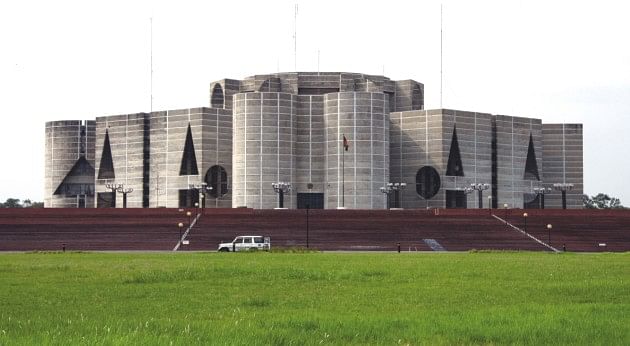|
One Off
You'd better listen to me!
Sharbari Ahmed
“Would you ever think of those who sent you there? I am talking to you. You who showered your constituency with tall promises, showed lots of dreams and got the privilege of entering the holy sanctum of the mother Parliament. You entered through its gates to sit at the altar of the most sought after assembly. You talked about the people and their lives, their ideas, their anguish, their mirth. But tell me, honestly, do you believe in whatever you have said?”
These are a few questions that plague me constantly. Because I am a firm believer in the fact that every human being has a politics of his own. When some one says, “I do not believe in politics”, (which is a very common expression these days) what they mean, is that they are anti-politics. On the other hand what they really are is that they are overly cautious. And by saying so they do not seem to understand that they are making a political statement. Therefore, they 'are' political. I think if you are a citizen of a democratic or even a quasi-democratic country you have a responsibility to be politically aware and, in fact, of having a political opinion. That thing considered, I don't think I am out of bounds in at least having a political opinion. That is what really brings me down to contemplate on my 'one off' today beginning with a direct question to the politicians, signed and sealed as such.

I was recently on vacation in a country half the world away from Bangladesh. It was a wonderful experience of an autumn with brilliant sunshine and a deep blue sky. Above all I was in the company of some very interesting Bangladeshis and their non-Bangladeshi friends. As is almost inevitable when a few deshis sit for tea, discussions veer towards politics. This time on I became the focal point of discussion. And the questions shot at me were predictable. What do you thing is going to happen with our country's politics? Now, whether I am really distanced from politics or not is not important. It is, however, important that I have just arrived from home and that I have arrived at a very important time. The nation was at a cross roads. People were getting caught, because of their direct or indirect involvement with war crimes and crimes against humanity: intimidation, graft, killing, collaboration et al. Fortunately there is still some semblance of logic that dictates questioning the culture of impunity. Those that we thought were above the normal confines of law were sought after and had to surrender to the normal process of law. And these were happening at a pace that we did not quite experience in the past. My common reply to most questions asked was that I had little knowledge of what was happening. However, since all of us have had a role to play in the state that we're in now, perhaps it'd be prudent to take a look at the people who had hastened the process to almost a point of no return. The consensus reached in the discussion was that the politicians were at fault. Some others said, “No it was the businessmen”. A friend interjected, “why do you leave out the bureaucracy”? Politicians, businessmen, bureaucracy-bureaucracy, businessmen, politicians! The evening rolled on. I thought, at the end of it all, what did it matter? In any case politics and business were now almost synonymous back in Bangladesh. And bureaucracy played the role of a fulcrum in the process. But since we were talking about politics, let us focus on the politicians. What could best be done by our politicians for a viable democracy to prevail in our country? I think our politicians have, in the recent past, once elected, did not bother to believe that they owed anything to the people who had elected them.
“This is because you believed that you had bought the votes and, therefore, the voters as well. You operated sitting within the confines of your citadels at Dhaka occasionally arriving in there constituencies, often in a helicopter like an angel from the skies or in the automated chariots of rare breed.” The hapless poor voters felt that this must be that special some one who was sent by God to bring them succour. They knew him and yet they knew him not. Was this the one that they had voted for? These angels talked big. Their speeches punctuated with tall promises. Or the promises made before the elections were renewed and the poor waited. Yet nothing happened. The poor voters were fated to be in as much misery as they were born in. The politics of money and of intimidation were on the increase. Politics became a business, big business at that. I earnestly feel that now was the time for the political parties with some vision and, more importantly, inclination to make amends. Politics had to be retrieved from the greedy money makers and opportunity seekers. It should be taken over by the people with integrity, honesty and a foresight, however, unsophisticated and unpolished they seemed. We should find people who do not use politics for business. The genuine political leaders should take it upon themselves to train people on what politics is all about and what the representatives of the voters were supposed to deliver. We need politicians with people-connect.
“And you, sitting there gloating in your exalted positions, brought about by deeds that you thought were legitimate should take heed to what the teeming millions think about you before it is too late. And for the sake of the nation that you feign to lead, and more for the sake of your safety, you'd do better to listen to me before it is too late.”
Copyright
(R) thedailystar.net 2010 |
| |
